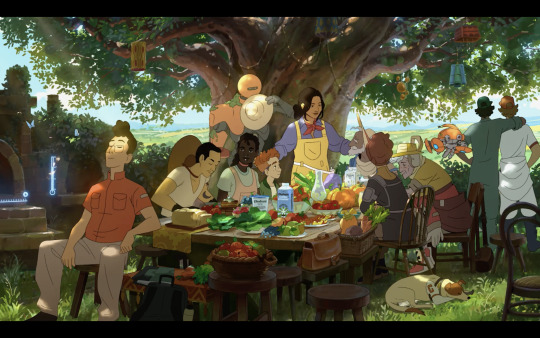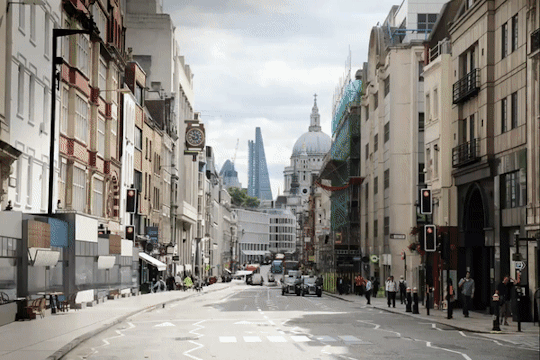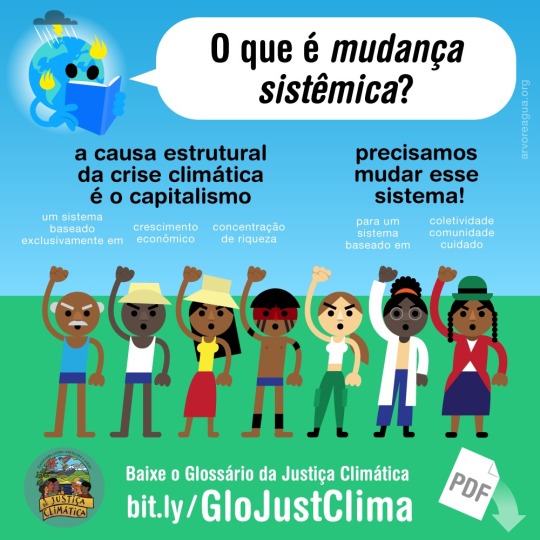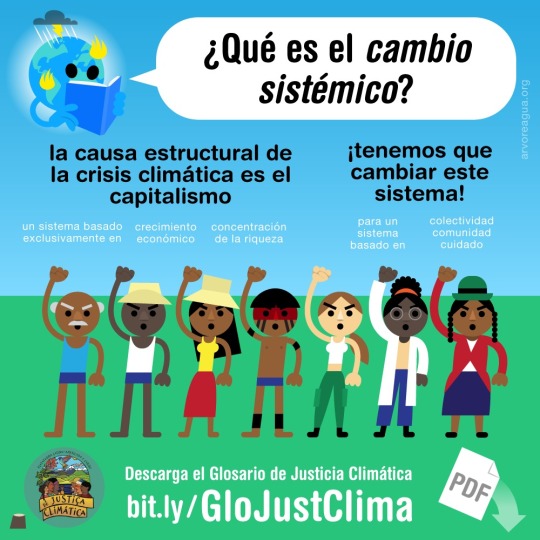#systemic change
Text
Something i keep thinking about is after palestine is freed there needs to be justice up to an including removal from office for everyone in a publicly held office position across the globe that supported this genocide.
If we leave the system in place that allowed, sponsored, and benefited from this genocide, then we have not achieved freedom at all. Only a temporary peace until the next time these governments decide to outright eradicate an entire group of people for whatever reaason.
#liberation#systemic violence#systemic change#justice for palestine#free palestine#settler colonialism#fuck israel#save congo#save palestine#save sudan#landback#indigineous people
366 notes
·
View notes
Text
#feminist#social justice#free palestine#palestine#free gaza#current events#celebrity culture#taylor swift#indigenous solidarity#solidarity#social commentary#social change#systemic change#end the genocide#end the occupation#tiktok video#tiktok
144 notes
·
View notes
Text
Solarpunk and the need for Community

When we talk Solarpunk, we often focus a lot on the technology aspect of it (and the aesthetic). Something that kinda gets overlooked a lot through that is, that Solarpunk also needs a change in the way we live and interact with each other.
See... Currently the system is designed to keep us apart. The current version of capitalism (and I would argue capitalism in general) is focused on hyper-individualism. Which not only is supposed to inspire people to do what is best for themselves no matter the cost for others or the environment, but also to distract from how the system is failing everyone, but especially minorities. Instead of seeing abherent povertity and overincarciration of minorities as systemic issues, it frames it as individual failings to keep people from realizing the unfairness of it all.
But it also keeps us from forming communities, helping each other and organizing to change things. Most people in big cities do not even know their neighbours. Especially outside of areas, where certain minority groups are concentrated. Which is kinda the other part of it...
Minority groups more often have some sort of community, because without any sort of mutual aid they could not survive. As the systems are created to work against them.
But the issue is still, that even with those groups, we too often still then only have certain minority groups which are again kept apart and in a constant battle with each other, rather than against the system, that suppresses them all.
What I am trying to say: To be able to make Solarpunk a reality, we need to build communities right here and right now and organize. And with that I do not mean online communities, but local communities, too. Work together with neighbours. Be it to help teach children, to repair broken technology and clothing, or to assist people who might suffer from food insecurity.
And within a Solarpunk world, if we were to imagine it, people would rely so much more on mutual aid within their local communities. Work together to solve local issues. Because solving issues that way is so much more effective, than have some far off politician in a big city try and find a solution for a problem, they know barely anything about.

#solarpunk#community building#mutual aid#anti capitalism#systemic inequality#systemic change#neighborhood#helping out#local communities
90 notes
·
View notes
Text
Nimona
Oh my gods what a show. I read the graphic novel back in high school, and so I was decently excited when I saw that it was being made into a movie. But I never could have prepared myself for what I just watched.
I was honestly expecting some inoffensive fluff. A fun summer watch with a bit of heart and some generic positive messaging. Maybe a few unexpected twists, but overall just something to fill the void of a day sans classes. And I am so glad I was wrong, because this film is an absolute gem.
Without spoilers, the themes in it ran so much deeper than anything I had even hoped for, to the point where I only recognized some of them from a gender studies class I just finished a week ago. There were literal manifestations of the internally destructive nature of normative social ideologies. There was cultural imperialism's casting of alternative modes of existence as inferior and transgressive. There were dominant narratives and how seeking to change them from within can all too easily get co-opted by pre-existing power structures.
And those are just the things related to a single uni class I just took which were big enough for me to point out.
Not everything in it gets directly addressed, and I wish that there had been more in the film about how class and race can intersect with all of those other dynamics and each other. The knights and their institute are white in both theme and skin tone, while many of the non-nobles have darker skin tones. The primary protagonist is from among them, and his appointment is a major inciting incident in the film. Again, trying to avoid spoiling things, there was a lot of possible set up there which didn't get fully realized. Some nods were made to it later in the film, but it wasn't the primary focus.
But even beyond all of those, there were more political critiques which did come across loud and clear. Chief among them being a rejection of the liberal notion of "removing the bad apples." Nimona is deeply concerned with systemic critiques and even subtly advocating the notion that sometimes systems need to be torn down before equity can be had. Well, I say subtly because initial advocacy for such is deliberately a bit over the top and hyper-destructive, while the ending heavily implies it without outright stating it. But the last "end credits scene" is literally an 'A' in a heart, soooo....
Anyways, I absolutely loved Nimona, and if you like queer themes, chaotic shapeshifters, social deconstruction, progressive messaging, sci-fi knights, gays who remain unburied, or even just gorgeous animation, then you'll probably like it too
#nimona#nimona film#nd stevenson#gender studies#lgbtq#queer shows#lgbtq rights#systemic change#systemic oppression#systemic discrimination#anti liberalism#animation#ballister blackheart#ballister boldheart#ambrosius goldenloin#nimona netflix#nimona graphic novel
20 notes
·
View notes
Text
youtube
NIMONA - A Punk Masterpiece by We Are Not Alive
#netflix nimona#nimona#movies#video essays#reactions#punk#rebellion#thought I'd only be using the rebellion tag for P5 but here we are#spiderpunk#zootopia#story themes#analysis#story analysis#systemic change#pinkfluidnf#Youtube#fanboying fangirling
10 notes
·
View notes
Text
Being the Professor I Needed
This week's post is about academia, ableism, and bringing about institutional change one class at a time.
As an adjunct professor, I have a few guidelines for myself that aren’t in any university handbook. They include
Never be the horror story professor students remember for the rest of their lives.
Be the professor young me needed as an undergrad (even if I didn’t know it).
Institutional/systematic change begins in the classroom.
The first one is probably slightly selfish on my part as I like…

View On WordPress
#ableism#academia#neurodivergent professor#neurodivergent students#nnes students#nonnative english speaking students#systemic change#teaching#the golden rule
3 notes
·
View notes
Text
"The "System" is a metaphor for what we allow, vote for, or stand for. We create the very prisons that keep us trapped.
How does changing ourselves change the system? It changes the way in which we view the world, thus, it changes, who we vote for, what we vote for, and what we stand for.
It is part of the human condition, though, that we sometimes hold on to what is bad for us, because it is consistent and perversely gives us a sense of safety. Change for some can be scary for a myriad of reasons, whats the quote, "Better the Devil you know". The perspective I offer is, by this very reckoning, means we are the creators of our own system of imprisonment.
My conclusion, if you want to change the world, change yourself."
1 note
·
View note
Text
Absolutely seething at the American media's trope? or formula? that the main character who defies a system always dies at the end. Typically the main character was mistreated by the system and had adapted to become a product of the system, even excelling at it and becoming something desirable by the system's standard, until their agency called out the bad things about the system, or called for its destruction/replacement/improvement. Even if their death is "deserving" to atone for their sins committed (and even this is an easy, formulaic way out), I seriously do not like the underlying message about systemic change.
#media analysis#media critique#corporate asshole#systemic change#narrative#writing#writer on tumblr#writing trope#storytelling#hi im back after like a hellish month
2 notes
·
View notes
Text
I was raised racist
If you asked my family, they would likely deny it. The thing that they're really not grasping is the bigger picture. Just because you don't want to be racist Phil, doesn't mean you're not part of a racist culture. Let's accept it so we can move on to fixing it.
4 notes
·
View notes
Quote
What do love and justice require of us? Love and justice require us to tell the truth, as best we can, about historical and contemporary injustices... Love and justice require us to believe those who have the bravery and honesty to share their stories with us. Love and justice require us to examine our own practices and behaviours, and to work for systemic change.
Minute 27, Britain Yearly Meeting of the Society of Friends, 2022
#Quaker#Quakerism#Society of Friends#Britain yearly meeting#love#justice#tell the truth#injustices#bravery#honesty#self-examination#systemic change#faith#action
12 notes
·
View notes
Note
i want to do everything i can to support palestine, but im unable to give money (im a minor and my parents refuse to get me a credit/debit card). i do my daily clicks on arab.org and spread information, but is there anything else i can do? sorry, i know its not your job to educate me, im just struggling to find anything i dont need a card to do
Hi! Thank you for reaching out! This is a post I stumbled upon a while ago below and I still reference here for those who haven't seen it. I'm not sure how young you are, but I just wanted to state this before you read this list of ways we can support -that no one is going to fault you for not being able to do everything. There are many things we can do that can cause a positive impact -especially boycotting, joining local actions if they are accessible to us, boosting reliable gofundme and donation links here, and staying informed/educated -they are all equally important as well.
There are also a lot of people who are still very apathetic and frustratingly so -do not care, so please know that everything you're doing -especially by not turning away from what is happening in Palestine and being silent on what is going on, and instead are looking for ways to make change -matters a lot.
I'm always here for questions, so I don't mind sharing resources and educational sources. I am also by no means perfect or an expert on everything -which is why I will reference platforms/pages of folks when I am talking about various interconnecting issues, systemically so, because that is their lived experience, not mine, and I do no speak on behalf of them.
On that note, (for people who are interested in learning more about Palestine), please do not ask any Palestinian person to 'explain' the systemic oppression they face. There are lots of resources online, and I have shared many -palipunk has a master list on their page for folks interested in starting to learn; Let's Talk Palestine on Instagram has mountains of educational posts, and there's also a quick beginner's course (which is free) on The Palestine Academy's website. Of course this is not extensive, but it is a start.
Thank you again, and wishing you all the best. And as always, free Palestine.
#feminist#social justice#free palestine#palestine#freepalastine🇵🇸#anon#asked#current events#palestinian liberation#activism#systemic oppression#systemic change#free gaza#gaza
24 notes
·
View notes
Text
"You can’t create diversity, and you don’t need to— diversity already exists. Spaces of power are so [insert the current typical descriptors of these spaces: white, fair-skinned, rich, "male," older, externally "able," etc.] because people have been systematically excluded."
- A consensual, personal paraphrase of my friend in a discussion with me
#diversity#dei#social justice#blacklivesmatter#equity#inclusion#systemic oppression#systemic inequality#systemic issues#systemic change#systemic ableism#systemic racism#racism#angela davis#discrimination#social issues#human rights
4 notes
·
View notes
Text
Law is not a good base for morals

I have a friend. Who is a lawyer. And... we tend to discuss a lot about morals.
Why? Well, because I am an anarchist and he... he is a lawyer. And as the latter he kinda loves to base his morals and understanding a lot around the law. Why I am very certain of one thing: Law is not a good thing to build yur morals on.
Let me make one thing clear: Anarchism is still very much the absense of hierarchies. Not the absense of rules. But... the juristic systems we have right now are very much based around hierarchies existing. Hence... they are a problem.
Whenever we speak about right and wrong it is not really hard to find those examples, where people are working against the law but are acting in a morally acceptable way.
The classical example is the following: Someone is starving. They do not have money. So, they steal food. Can you really fault them for stealing? Is stealing from a big coorporate supermarket really a morally wrong thing to do here?
Or let me get out my environmentalist gear and say: Okay, if someone was to blow up that pipeline in an attempt to prevent climate change... Did they act morally wrong?
The later example is of course not even so unrealistic. Because right now the governments in general try to outlaw all sorts of climate protests. I mean, in Germany we have the police violently working against the climate protests and using laws against these peaceful protests.
But... those examples are also not the only reason why laws are shitty to base your morals on.
Because... laws are biased. And they can be used in any way possible. A good example is that: Yes, at one point in time having a slave was legal, while helping that slave escape was illegal. But these days we do not need to discuss which of those actions is morally good and which is morally aprehensible.
I kinda think that laws as we have and enforce them these days are actually making it harder for a lot of people to act morally good. While not in the way we have had during slavery or third reich Germany or what not... There is still a lot of actually bad, unmoral stuff enshrined in law to this day. And... We should learn to acknowledge that
#anarchism#law#philosophy#good and evil#law does not make for good morals#systemic inequality#systemic change
18 notes
·
View notes
Photo

MUDANÇA SISTÊMICA - A evidência esmagadora dos impactos das mudanças climáticas estabelece claramente as causas estruturais da crise climática. O capitalismo, como sistema global e institucionalizado de organização econômica que busca o crescimento econômico e a concentração da riqueza como único objetivo, está destruindo a vida no planeta.
Se quisermos abordar as causas estruturais das mudanças climáticas, devemos buscar mudanças sistêmicas. Embora não tenhamos clareza em detalhes sobre o que isso significa, sabemos que devemos passar por uma transição que reestruture as formas de organização socioeconômica e restaure a harmonia com a natureza, ao mesmo tempo em que provoque justiça social e equidade.
Essa mudança sistêmica deve eliminar o capitalismo e suas relações de poder, assim como o extrativismo predatório, o patriarcado, o racismo, o colonialismo, o especismo e a discriminação de classes. Deve ser uma mudança que coloque o comum, o coletivo, a comunidade, o cuidado e as redes de vida no centro da organização econômica e social, onde se distribui a riqueza, consome-se o necessário e se proporciona uma vida digna, em especial, às populações historicamente excluídas, deslocadas e impactadas pelo sistema de acumulação de riqueza. Um sistema que respeite os direitos humanos das comunidades indígenas e ancestrais, mulheres, camponeses, trabalhadores e os direitos da natureza.
Baixe o Glossário da Justiça Climática:bit.ly/GloJustClima

CAMBIO SISTÉMICO - La abrumadora evidencia de los impactos del cambio climático constata con claridad las causas estructurales de la crisis climática. El capitalismo, como sistema de organización económico, global e institucionalizado, que busca como único fin el crecimiento económico y la concentración de la riqueza, está destruyendo la vida en el planeta.
Si queremos abordar las causas estructurales del cambio climático debemos buscar un cambio sistémico. Aunque no tengamos claridad en detalle de lo que esto significa, sabemos que debemos pasar por una transición que reestructure las formas de organización económico-social y restablezca la armonía con la naturaleza, al mismo tiempo que conlleve justicia social y equidad.
Este cambio sistémico debe eliminar el capitalismo y sus relaciones de poder, así como el extractivismo, patriarcado, racismo, colonialismo, especismo y el clasismo. Debe ser un cambio que ponga lo común, lo colectivo, lo comunitario, el cuidado y las redes de vidas en el centro de la organización económica y social, donde se distribuyan las riquezas, se consuma lo necesario y se brinde una vida digna, en especial, a las poblaciones históricamente excluidas, desplazadas e impactadas por el sistema de acumulación de riquezas. Un sistema que respete los derechos humanos de comunidades indígenas, ancestrales, mujeres, campesinas/os, trabajadoras/es y los derechos de la naturaleza.
Descarga el Glosario de Justicia Climática: bit.ly/GloJustClima

SYSTEMIC CHANGE - The overwhelming evidence of the impact of climate change undoubtedly confirms the structural causes of the climate crisis. Capitalism–regarded as an economic and organisational system, global and institutionalised–is destroying life on Earth solely to make some achieve financial growth and wealth concentration.
If we are to address the structural causes, a systemic change must be introduced. Even if we lack thorough understanding as to what this means, we acknowledge that there is an overriding need for a transition not only to reconstruct forms of social organisation and restore harmony in Nature but also to attain social justice and equity.
Such a change must eradicate capitalism and power relations as well as extractivism, patriarchy, racism, colonialism, speciesism and class discrimination. It must establish the common, the collective, the communal, care, and webs of life as the core values of a socio-economic organisation which distributes wealth equally, encourages adequate food consumption, and provides a fulfilling life principally to historically marginalised groups–displaced and enduring the consequences of a wealth accumulation system. There is a need for a model which respects human rights of indigenous communities, women, country people, workers as well as the rights of Nature.
Download the Climate Justice Glossary: bit.ly/GloJustClima
3 notes
·
View notes
Text
youtube
Why the Social Commentary in Netflix's Witcher Doesn't Work by Alien Platypus
#the witcher#video essays#allegory#writing#adaptations#live action#novels#books#contrasts#systemic change#history#morally gray#i hate when people say an antihero did nothing wrong#methods matter#NTTUIPRN#bigotry#vicious cycles#food for thought#Youtube#analysis#feminism#netflix
2 notes
·
View notes
Text
youtube
1 note
·
View note